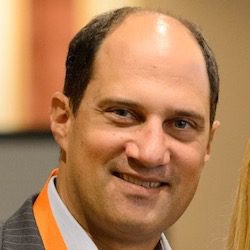2014 will be a pivotal year, as the future of the Internet and Internet governance is at a crossroads. Major conferences are taking place in 2014 and 2015, providing opportunities to review and improve existing Internet governance arrangements. The open question is whether there will be an international consensus on the multistakeholder Internet governance model or a shift towards a more intergovernmental model.
The Internet was built on basic libertarian and democratic axioms; it was developed and deployed outside the sphere of government influence, with the academic and technical communities playing the leading role. Their distributed, informal, and bottom-up decision-making processes challenge the traditional world of governments, which is based on the principle of national sovereignty, as enshrined in the UN Charter. One of the key questions for the future of Internet governance is the role of governments.
Following on the NETmundial conference in Brazil and anticipating major governance events later in the year – including the 2014 Internet Governance Forum and ITU Plenipotentiary – this briefing for Geneva-based Missions will provide an opportunity to discuss the future of Internet governance and the role of governments in Internet governance arrangements.
The event is organised in co-operation with ISOC within the Geneva Internet Platform, an initiative of the Swiss authorities operated by DiploFoundation.
When:
- Thursday 12 June 2014, 13:15-14:30. Light refreshments will be served at 12:30.
Where:
- DiploFoundation, World Meteorological Organization Building (2nd floor)
7bis, Avenue de la Paix, Geneva 1211, Switzerland
Programme
- Welcome remarks, Constance Bommelaer, ISOC
- The role of governments: lessons learned and the way forward (chaired by Constance Bommelaer, ISOC)
- Markus Kummer, the Internet Society: History of the debate – from WSIS to the post-2015 agenda
- Dr Jovan Kurbalija, Diplo Foundation/GIP: NETmundial between blue sky (innovative participation) and red lines (limitations in negotiations)
- Dawit Bekele, ISOC: How does the multistakeholder model work in Africa?
- Eliot Lear, IETF: Case study – How is the technical community contributing to the surveillance issue and how can governments take part?
- Petko Kantchev, Bulgarian Government (tbc): How countries create multistakeholder delegations for international meetings
- Q&A with floor participants
- Conclusion, Michael Kende, ISOC
Event summary
Photos from the event are available here. New
Event summary available here. New







![[Webinar] Small island developing states and the IG process 1 Land, Nature, Outdoors, Sea, Water, Coast, Peninsula, Shoreline, Promontory](https://diplo-media.s3.eu-central-1.amazonaws.com/2014/05/SIDS.jpg)
![[Briefing #5] Internet governance in May 2014 2 Nature, Outdoors, Sea, Water, Sea Waves, Leisure Activities, Sport, Surfing, Text](https://diplo-media.s3.eu-central-1.amazonaws.com/2014/04/gip-logo-featured.png)